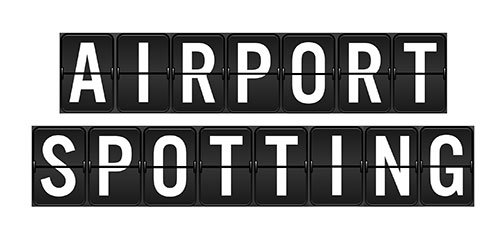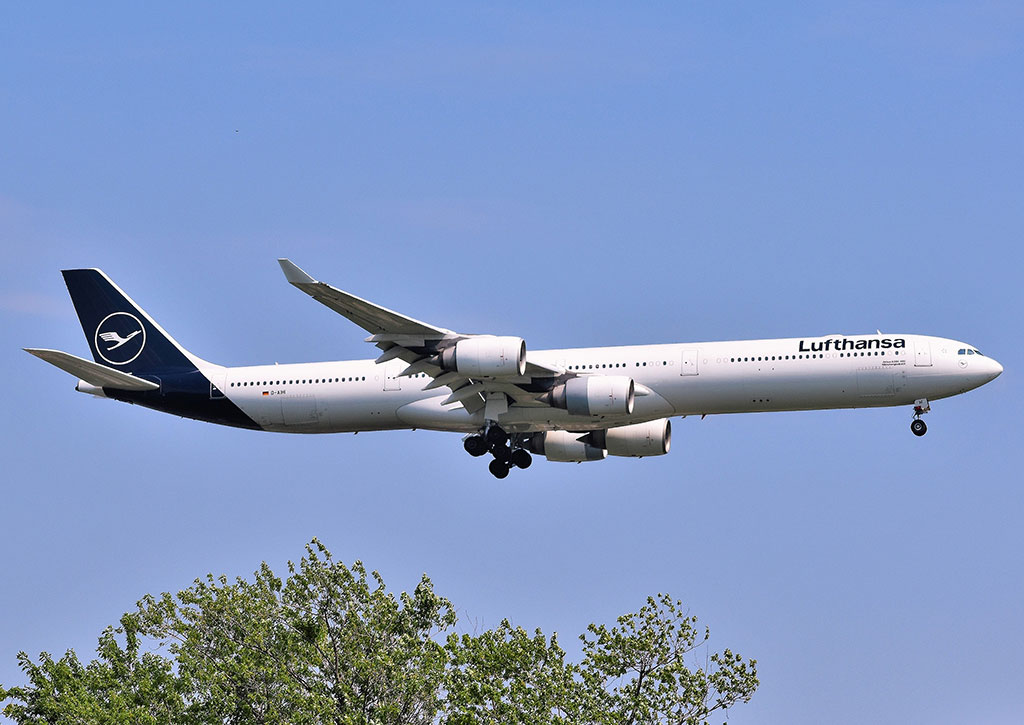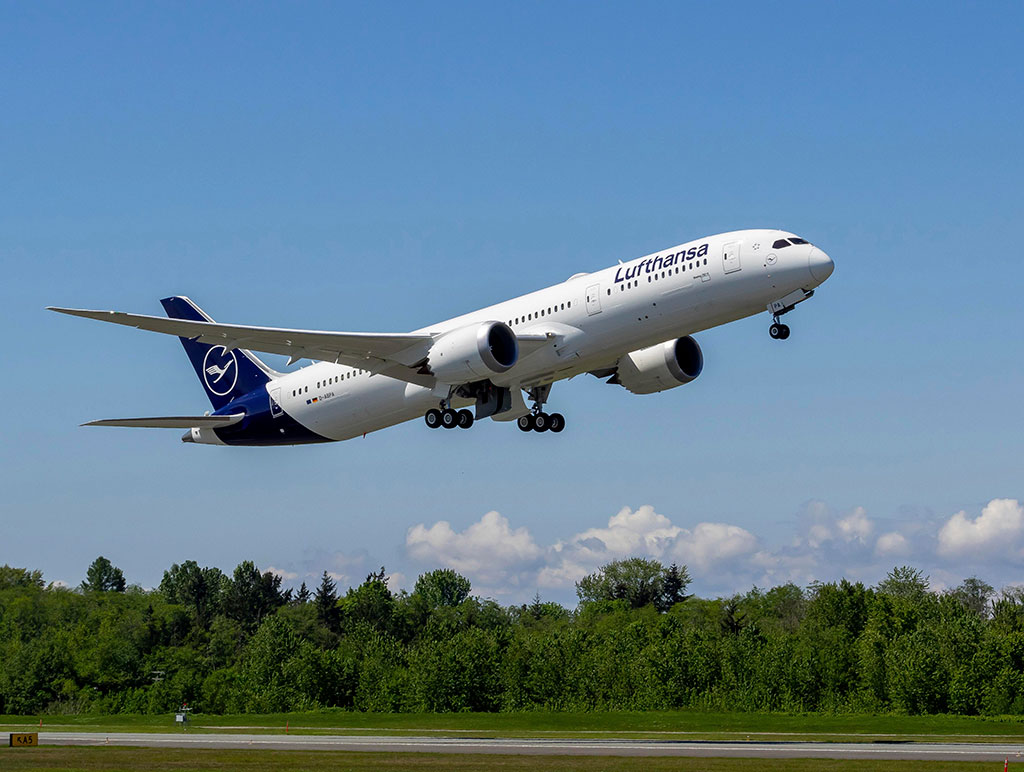Lufthansa Group is embarking on a significant transformation in its fleet, signaling the end of an era for several iconic aircraft types. As part of a broader strategic overhaul, Lufthansa Airlines will retire the Airbus A340-300, A340-600, A330-200, and Boeing 747-400 by 2028. This move is aimed at modernizing the fleet, enhancing efficiency, and aligning with the airline’s future goals.
A drop in net profits, exacerbated by aircraft technical problems, delays in deliveries, and strikes by staff, has led to the airline making some proactive decisions about its future.
The Aircraft Set for Retirement
Airbus A340-300 and A340-600
The Airbus A340 series has been a mainstay in Lufthansa’s long-haul operations for decades. The A340-300 and A340-600, known for their four-engine reliability and long-range capabilities, have served routes across the globe. However, with advancements in aviation technology and a shift towards more fuel-efficient twin-engine aircraft, the time has come for these models to retire. The A340’s higher operating costs and fuel consumption compared to newer models are significant factors driving this decision.
Airbus A330-200
The A330-200 has been a workhorse in the Lufthansa Group’s fleet, known for its versatility and efficiency on medium to long-haul routes. Currently only flown by Lufthansa Group partner Discover Airlines, it is phasing out this model in favor of newer, more advanced aircraft that offer better fuel efficiency and reduced emissions.

Lufthansa Boeing 747-400. Photo (c) Erik Ritterbach
Boeing 747-400
Perhaps the most iconic of the retiring aircraft is the Boeing 747-400, affectionately known as the “Queen of the Skies.” This aircraft has been a symbol of long-haul travel for decades, with its distinctive humpbacked design and double-decker configuration. While the 747-400 has been a passenger favorite, the operational economics of four-engine aircraft in today’s aviation market make it less viable compared to modern twin-engine aircraft.
The Future of Lufthansa’s Fleet
Lufthansa’s fleet strategy is focused on simplification and modernization. By reducing the number of long-haul aircraft types to six, the airline aims to streamline operations, reduce maintenance complexity, and improve overall efficiency. This approach not only helps in cutting costs but also enhances operational reliability and flexibility.
New Aircraft and Technologies
Lufthansa is expected to invest in newer aircraft models such as the Airbus A350 and Boeing 787 Dreamliner, both of which are renowned for their fuel efficiency, advanced aerodynamics, and reduced environmental impact. These aircraft offer significant improvements in terms of operating costs and passenger comfort, featuring modern cabin designs, quieter engines, and enhanced inflight entertainment options.
Environmental and Economic Benefits
The retirement of older aircraft and the introduction of new models align with Lufthansa’s commitment to sustainability. Modern aircraft consume less fuel and produce fewer emissions, contributing to the airline’s environmental goals. Additionally, the operational savings from more efficient aircraft help Lufthansa remain competitive in a challenging market.
Impact on Operations and Passenger Experience
Lufthansa’s decision to phase out these aircraft types will also influence its route network and service offerings. Passengers can expect a more modern and comfortable flying experience, with the latest in cabin technology and amenities. The new aircraft will likely feature improved seating, better inflight connectivity, and more efficient boarding and deplaning processes.
Enhanced Customer Experience
The introduction of Lufthansa’s new intercontinental product ‘Allegris’ is part of this modernization effort, promising an upgraded travel experience. Passengers will benefit from new seating options, including premium economy and business class innovations that enhance comfort and privacy.
Operational Efficiency
By focusing on a smaller variety of aircraft types, Lufthansa can optimize crew training, maintenance procedures, and spare parts inventory, leading to more efficient and reliable operations. This operational streamlining is expected to mitigate some of the challenges posed by recent market developments and structural issues within the airline.

Swiss A340-300s will be retired as part of the plan.
The retirement of the Airbus A340-300, A340-600, A330-200, and Boeing 747-400 is a bold step towards a more efficient, sustainable, and customer-focused future. For aviation enthusiasts, it’s a poignant farewell to some beloved aircraft, but it also heralds an exciting new chapter in Lufthansa’s history.







